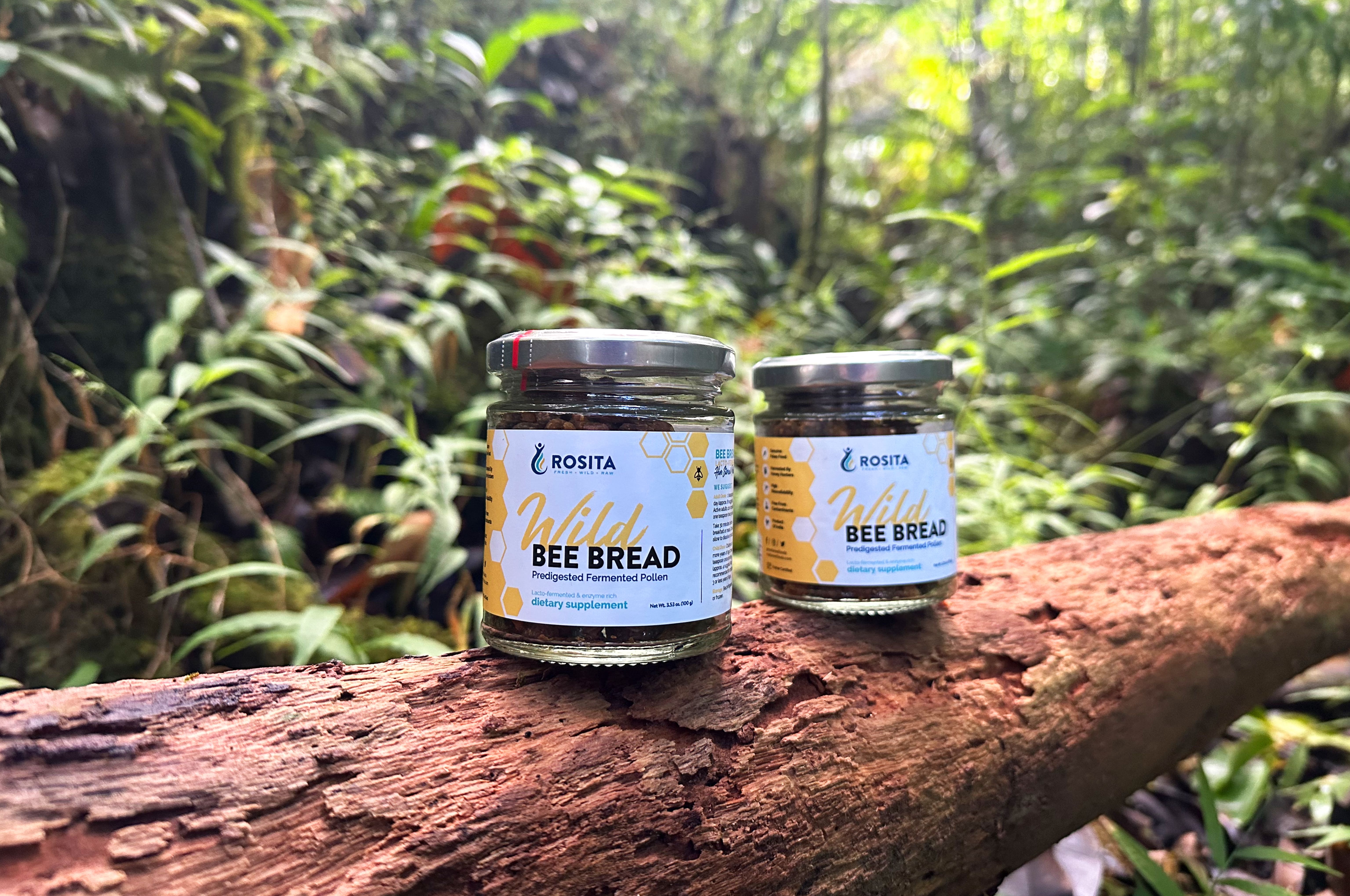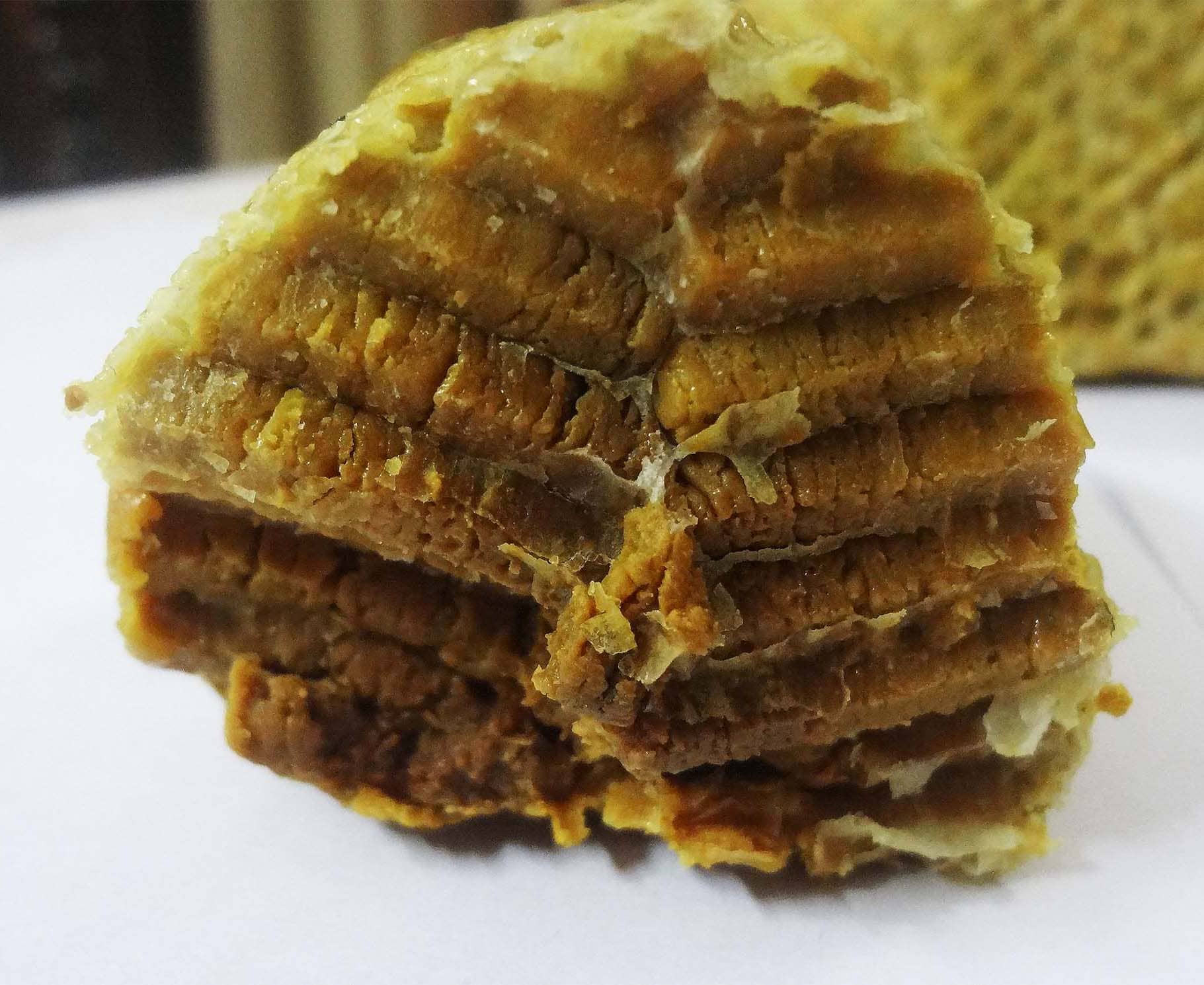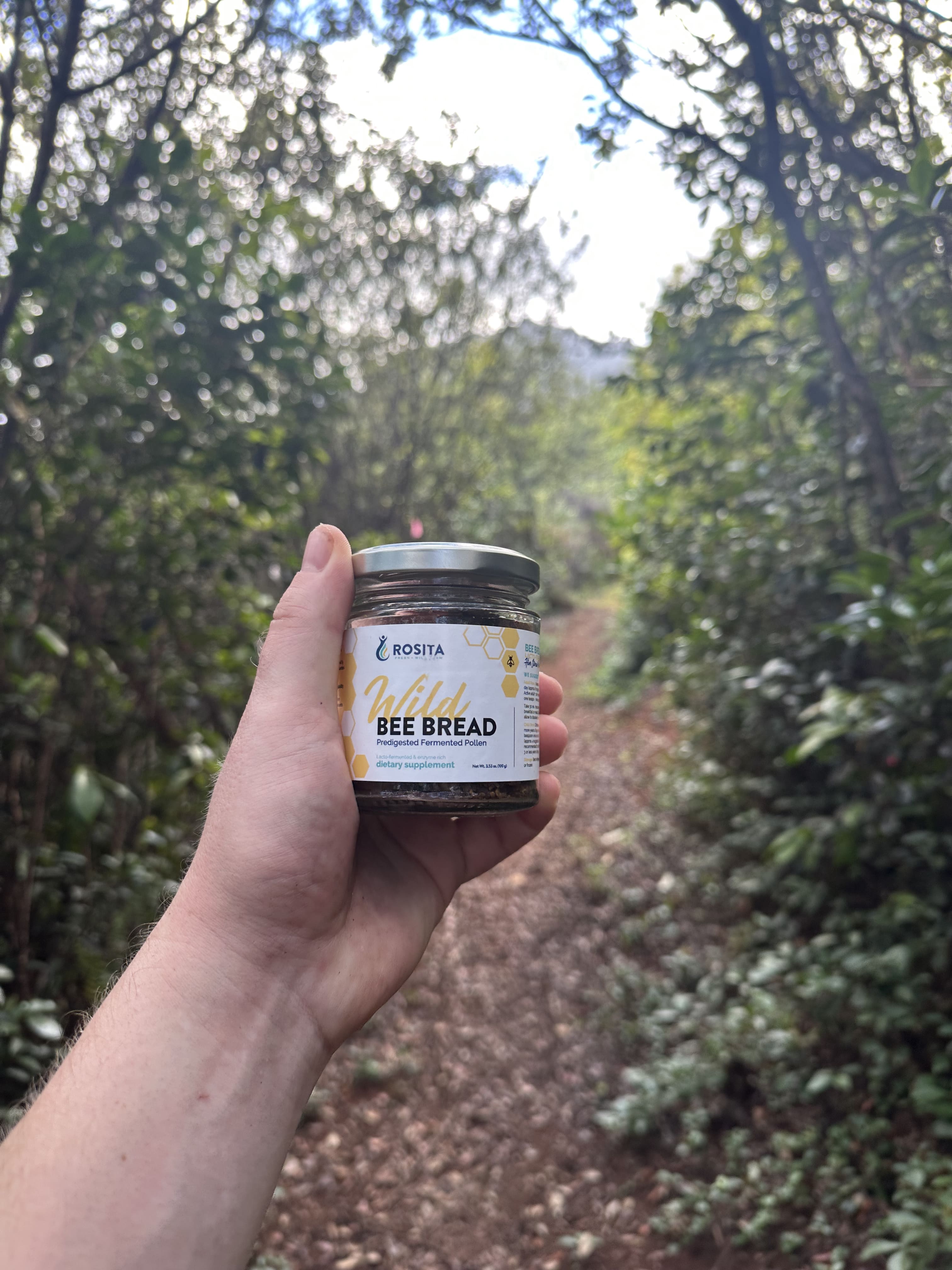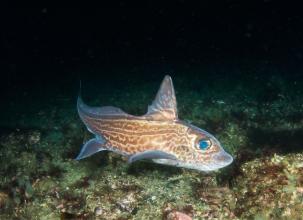
Bee Bread is an extremely nourishing lacto-fermented dietary supplement made by bees from plant pollen, nectar and bee saliva that helps to support digestion and immunity. Traditionally known as ‘Ambrosia” or food of the Gods, it has been used since ancient times by a variety of cultures for its nutritional and therapeutic properties. It is enzymatically activated which inoculates the pollen with a wide range of lactic acid bacteria and yeasts that ferment and transform the bee pollen into bee bread.
Bee bread is a treasure trove of bioactive peptides, phytochemicals, essential amino acids and carbohydrates that contains natural antioxidants including polyphenols, vitamins, minerals, enzymes, omega 3’s, prebiotics and probiotics that help support the intestinal flora. Research shows that bee bread has anti-microbial, anti-inflammatory, anti-cancer, anti-hypertensive, neuroprotective and hepatoprotective properties (Mohammed et al. 2021).

The creation of bee bread is nothing short of alchemy. Foraging bees visit a variety of flowers collecting pollen grains, then mix the pollen with saliva and regurgitated nectar from their honey stomachs which are rich in lactic acid bacteria such as lactobacillus species. This sticky pollen attached to their legs is transported to the hive and packed into honeycomb cells, covered in honey signalling the start of the lactic acid fermentation process. This breaks down the pollen making it more digestible (like the process of making yoghurt and other fermented milk products) and enables the bees to add naturally occurring enzymes, vitamins, antibacterial substances and organic acids, transforming the pollen into bee bread. This is the difference between bee pollen and bee bread, this fermentation process of the pollen by the bees which gives it a broad range of natural probiotic benefits. The fermentation process is what gives the bee bread that tangy slightly sour taste due to the lactic acid. The sheaths of bee pollen are degraded during the fermentation process making bee bread more absorbable. Proteins are degraded to peptides and amino acids, starches are metabolized into simple sugars and vitamins become more bioavailable. Bee bread therefore has a higher nutritional value than fresh pollen and is more easily digestible and biologically active due to its content of easily digestible sugars, fats, minerals and free amino acids. Due to the fermentation process bee bread also has a longer shelf life compared to dried or frozen pollen in which nutritional values can be lost more quickly.
Rosita Wild Bee Bread is sustainably harvested by honey hunters in the lush green tropical forests and Himalayan foothills of India and created in the hive through an entirely raw and natural fermentation process by wild (not farmed) giant rock bees (Apis Dorsata). Apis Dorsata is the world's largest honeybee, building its nest in the open on vertical cliffs and tall trees to avoid predators and for increased exposure to direct sunlight. The way that it is harvested is incredible, precious, ancient and sustainable. Honey hunters bravely climb up tall trees using hand made ladders to reach the wild beehives whilst protecting the wild bee colonies. They use bee friendly sustainable collecting methods which actually stimulate the growth of wild beehives. Bees are actually responsible for pollinating one third of the food we eat so helping to protect and preserve them is key. Harvesting also supports the indigenous communities and helps protect the wild forests of India and their rich biodiversity. Then the bee bread is gently extracted from the honeycomb using a totally natural method that protects its rich nutrients and goes directly into the bottle with absolutely no processing or additives.

Rosita Wild Bee Bread is never heated or dried and completely raw and free from additives, artificial colours, flavours and preservatives which ensures biological efficacy. It has extensive nutritional and therapeutic properties, is abundant in proteins, free amino acids and all the essential amino acids, carbohydrates, organic acids and fatty acids including omega 6 and omega 3. It also contains fat soluble vitamins A beta carotene, D, E, K and water soluble vitamins B1, B2, B3, B5, B6, Biotin, Folate, C, minerals and trace elements (magnesium, manganese, calcium, iron, zinc, copper, sodium, chromium, selenium, iodine to name a few). It also contains polyphenols such as quercetin, flavonoids, apigenin, naringin and rutin and even co-enzyme Q10. Xi Chen et al found that it even contains small RNA molecules that play an important role in gene regulation by regulating biological processes when absorbed by humans and other animals. Overall it's like taking a healthy natural multivitamin supporting the body on all levels.
The microbial composition with probiotic properties of bee bread is what gives it its great therapeutic benefits. A large amount of beneficial lactic acid bacteria are present that can fight bacterial infections which include 13 different types, 9 species of lactobacilli and 4 species of Bifidobacteria. A lot more than found in commercial probiotics. As a gut health nutritionist I recommend taking bee bread daily to help improve the microbiome composition. Either as a preventative to keep the gut healthy and support the immune system or to help heal any gut concerns. I see a lot of gut disorders in clinic ranging from IBS to SIBO to more serious IBD such as crohns or ulcerative colitis. All clients would benefit from taking bee bread daily before breakfast (1 tsp is enough for adults, half tsp for kids) and then see the results after one month. Let me know if you notice the benefits! For kids it's an especially wonderful addition to improve their gut health with a pleasant fruit-like aroma and slightly tangy taste with citrus and fruit flavours. It dissolves easily in the mouth and can be chewed 30 mins before you enjoy your breakfast.


Khalifa et al. (2020) in their review study suggested that bee bread exhibits a remarkable hypolipidemic effect through the cholesterol-lowering factors produced by this Lactobacillus bacteria. Another study tested for antibacterial activity against the following bacteria: Staphylococcus aureus, Bacillus cereus, Pseudomonas aeruginosa, and Escherichia coli and showed that all bee bread samples exhibited strong antimicrobial activities against the bacterial strains and against diverse pathogens (Bakour et al, 2020).
As a nutritionist I use Rosita’s Bee Bread myself to keep my gut health optimised and I always highly recommend it to clients who are in need of a microbiome support protocol. A wonderful product to have in your nutrition tool kit.
Find out more detailed information about our Wild Bee Bread by reading the documents linked here:
Khalifa et al. (2020)
https://www.sciencedirect.com/science/article/abs/pii/S0924224419301657
Mohammed et al. (2021)
https://www.ncbi.nlm.nih.gov/pmc/articles/PMC7917892/
Bakour et al. (2020)











Leave a comment